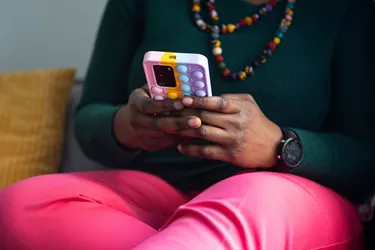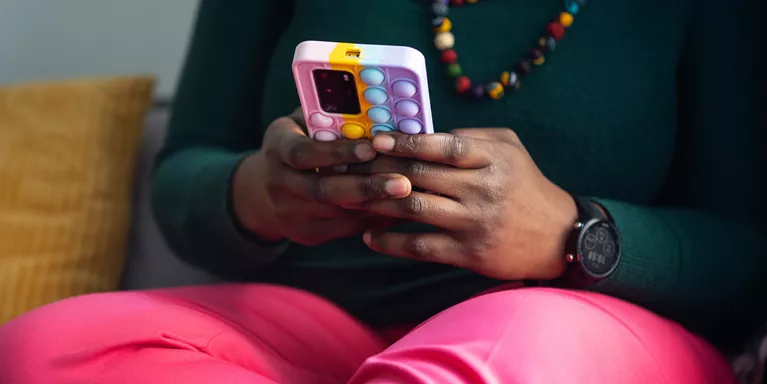The truth about bullying and mental health
Jenni reflects on her experiences of bullying and the impact it has had on her mental health.
The disgusting abuse being hurled at various women in the public eye via Twitter a few months ago, as well as recent reports of the sickening trolling of teenagers driven to suicide has lead me to think about my own experiences of bullying.
Having been picked on at primary School, bullied all five years of secondary school, suffered bullying in a previous workplace and been the victim of Twitter abuse, I consider myself fairly well placed to speak on the subject. Perhaps it could be a future Mastermind subject? "Jenni you have 60 seconds to answer questions on your specialist subject Bullying", but I digress.
Sadly bullying blights the life of many people and it's not just kids. In the age of social media "adult bullying" for want of a better term is on the rise. I think people are finding it more acceptable to harass and insult each other across all sorts of mediums. Whilst the media focuses on the extreme examples and their tragic consequences I'd like to tell my own story.
I've never been popular, I've always been a self-confessed ‘geek’. When I was at primary school although I was picked on, called fat and stupid – the normal stuff, it was bearable. Secondary school was a whole different story. The saddest thing is that I consider my experience to be one of the lesser cases of bullying that I witnessed in my year group. I feel like I was lucky only to have been physically bullied on a small number of occasions .
"The old saying that "sticks and stones can break my bones but words will never hurt me" is woefully untrue."
Imagine five years of your life where you are being told daily that you are ugly, fat, weird and a freak. Add to this regular teenage angst and you have a recipe for a mental health disaster (or of course a really good emo-rock album).
Oddly my depression and anxiety, although directly connected to the bullying, didn't come on until after college. I think that because I had the most amazing time at college with the friends that I did have from school, it wiped away the memories and insecurities for two glorious years. It was when this was over that the memories and feelings returned and mutated into serious mental health problem.
The media usually concentrate on the immediate after effects of bullying but the truth is the effects reach further than you can imagine.I left school an entire decade ago, yet I can still feel like that isolated 13 year old with everyone laughing at her. Even after seven years of medication, counselling and talking therapies, I'm paranoid that my hair is greasy after comments made over 12 years ago.
I'm not trying to write a "woe is me" blog, as many people have come through far worse experiences and I have so much respect for their strength and resilience. However I really think there is an argument for talking about the long-term effects of bullying long after school is over.
"If someone was to explain, frankly and openly how much the actions of others have affected them down the line would that make kids (or even adults) stop and think how they treat people?"
If even one bully was stopped in their tracks as a result of being shown the damage they are doing then that's one less person suffering now and potentially in the future.
If you are reading this and are being bullied, then first of all *massive hugs*, secondly well done on being brave and coping every day. At the risk of sounding like a cliché it will get better, in little ways you will be able to fight back. Maybe not whilst you are at school but in the future you will have moments when you look back and think "ha! if you could see me now" (one of mine was when Jared Leto of 30 Seconds To Mars told me I was cool). One of the ways I fought back was by taking pride in being different, it gave me freedom to be myself and have friends who accepted me for me rather than someone trying to fit in with the in-crowd.
So remember, no matter who you are, whether you're 5, 15, 25 or 105 then you are better than the bullies. It will get better. If I can survive it, then so can you.


Information and support
When you’re living with a mental health problem, or supporting someone who is, having access to the right information - about a condition, treatment options, or practical issues - is vital. Visit our information pages to find out more.
Share your story with others
Blogs and stories can show that people with mental health problems are cared about, understood and listened to. We can use it to challenge the status quo and change attitudes.

















